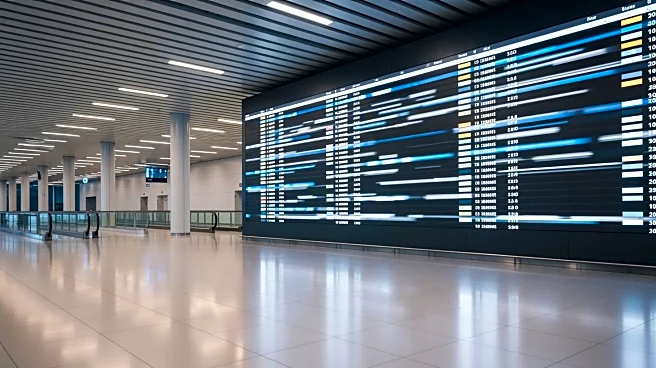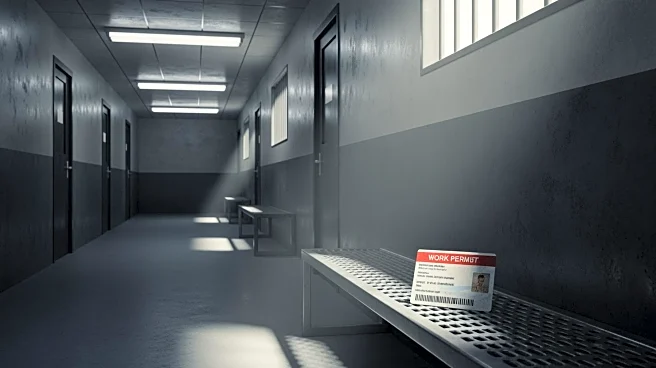What's Happening?
Pope Leo met with Israeli President Isaac Herzog to discuss the ongoing conflict in Gaza. During the meeting, Pope Leo urged for a permanent ceasefire in the Palestinian enclave and called for the release of hostages held by Hamas. The Vatican emphasized its support for a two-state solution to the Israel-Palestinian conflict. The meeting, held at the Vatican's apostolic palace, was marked by a call for the resumption of negotiations to secure the release of hostages, achieve a ceasefire, and ensure humanitarian aid access. Herzog expressed gratitude for the meeting and highlighted the importance of religious leaders advocating for peace.
Why It's Important?
The meeting between Pope Leo and President Herzog is significant as it underscores the Vatican's active role in advocating for peace in the Middle East. The call for a ceasefire and hostage release reflects the Vatican's influence in international diplomacy and its commitment to humanitarian principles. The emphasis on a two-state solution aligns with longstanding international efforts to resolve the Israel-Palestinian conflict. The meeting may impact diplomatic relations and encourage other global leaders to take similar stances, potentially influencing peace negotiations and humanitarian efforts in the region.
What's Next?
Following the meeting, there may be increased diplomatic efforts to address the conflict in Gaza. The Vatican's call for a ceasefire and humanitarian aid access could prompt international organizations and governments to intensify their involvement in peace negotiations. President Herzog's discussions with Vatican officials may lead to further diplomatic initiatives aimed at securing a future for the Palestinian people. The meeting could also influence public opinion and encourage religious and political leaders to advocate for peace and humanitarian solutions.
Beyond the Headlines
The meeting highlights the ethical and humanitarian dimensions of the conflict in Gaza. Pope Leo's stance reflects a broader moral obligation to protect human rights and promote peace. The Vatican's involvement may also influence cultural perceptions of the conflict, encouraging dialogue and reconciliation. The emphasis on humanitarian law and aid access underscores the importance of addressing the needs of affected populations and ensuring their safety and dignity.








